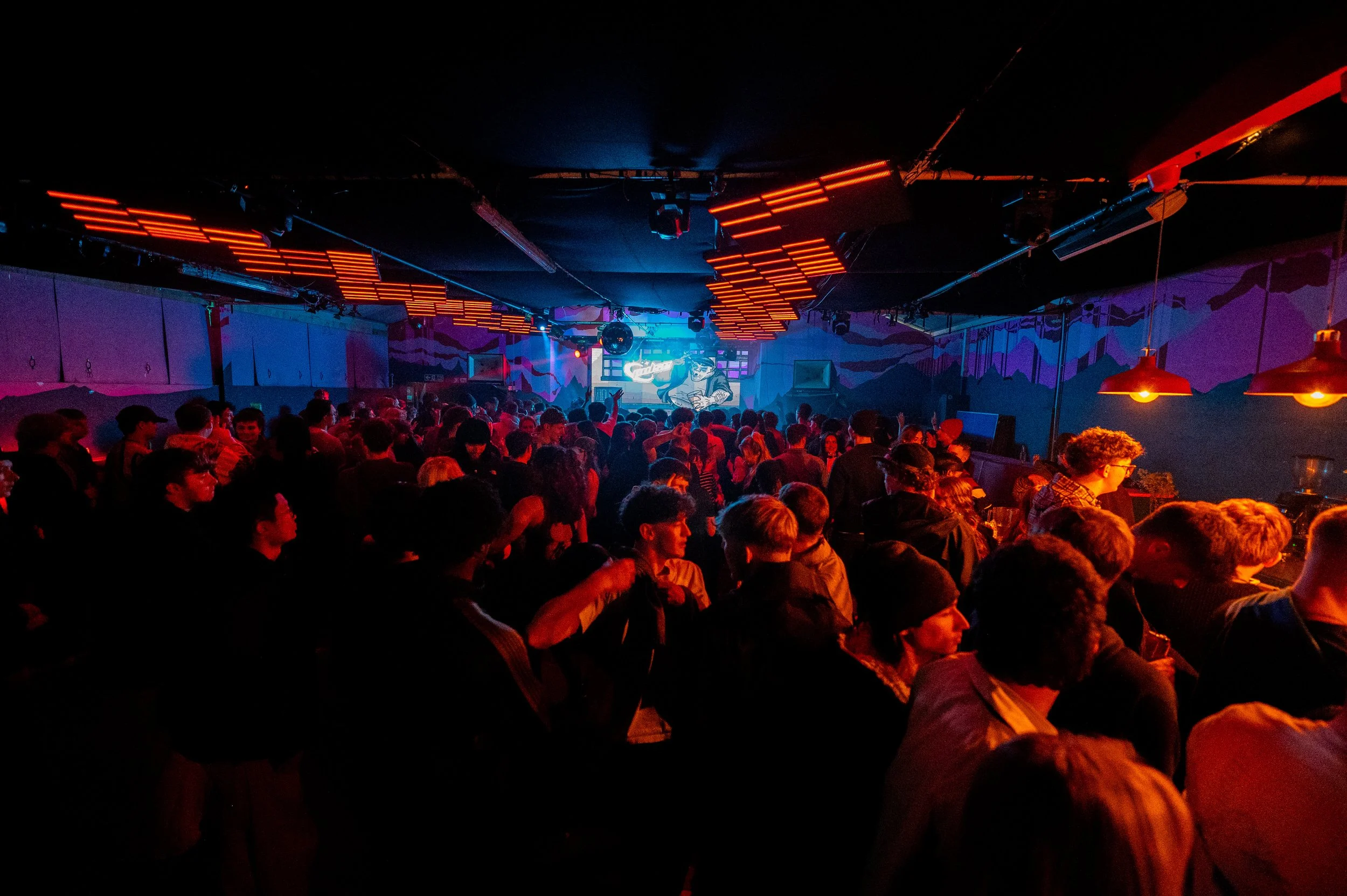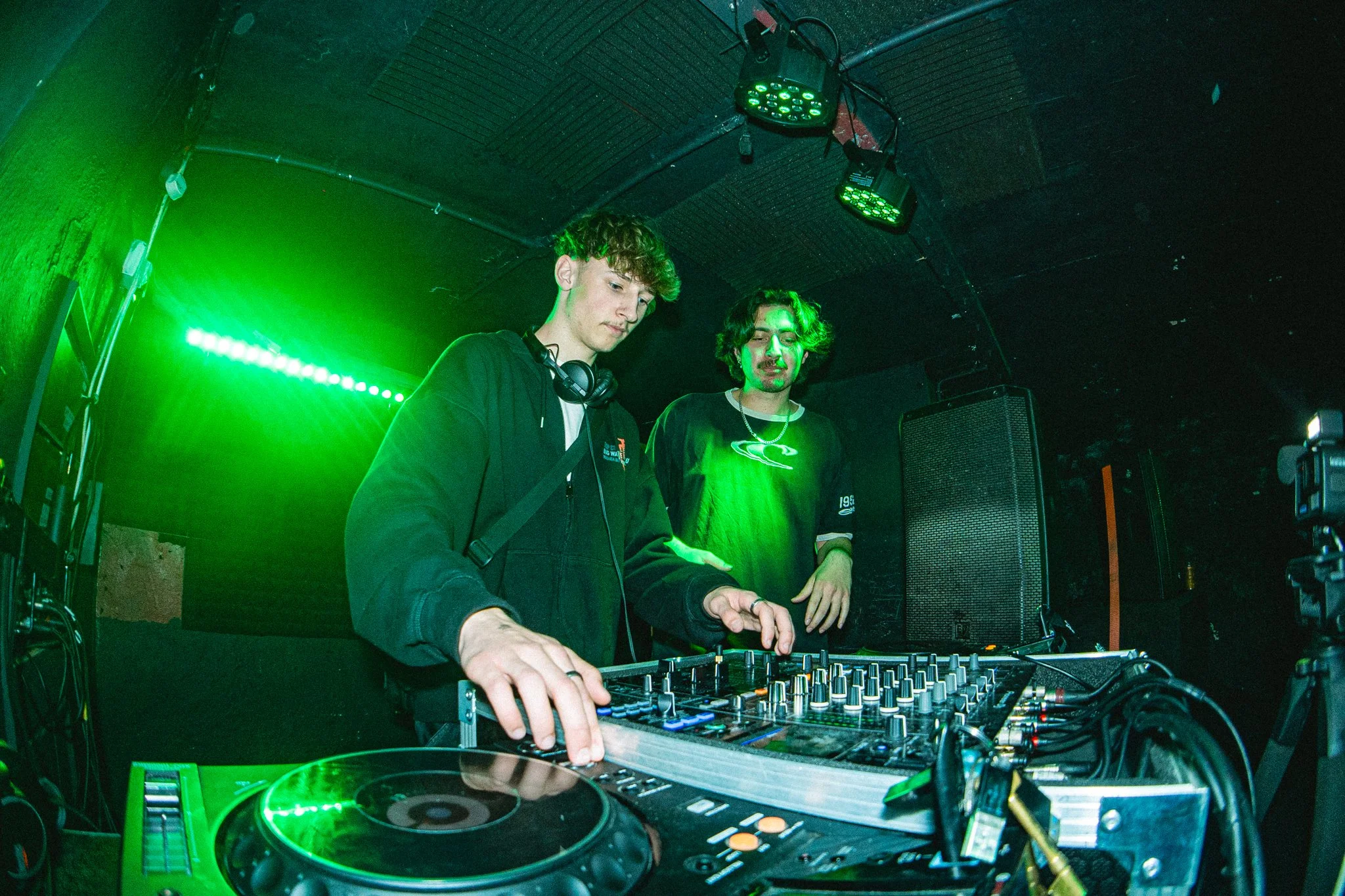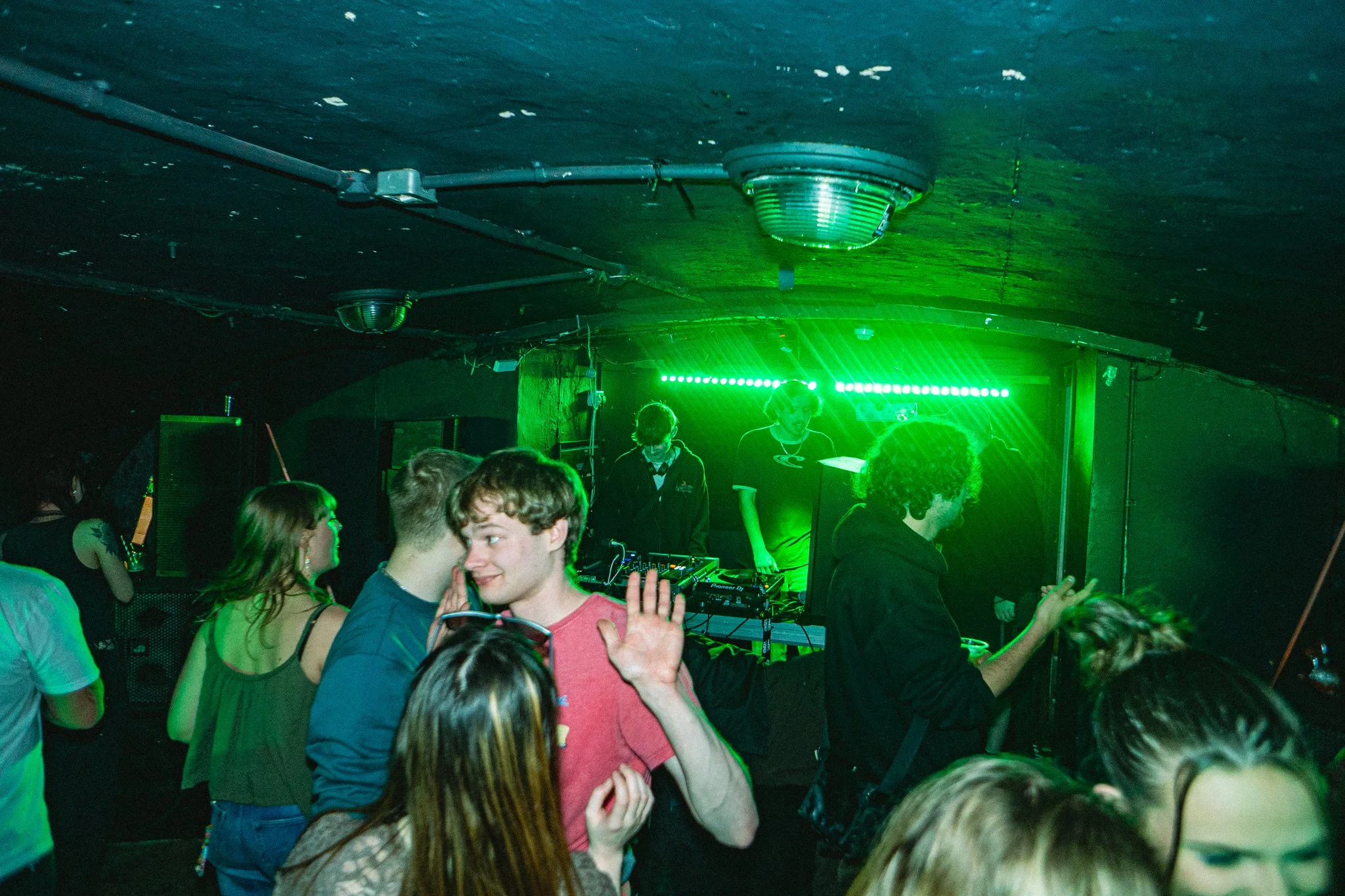Restoring and nurturing the UK’s nightlife — especially in cities like Bristol — starts with recognising its cultural value and fighting for its survival. That means showing up, attending grassroots events, supporting local promoters, buying tickets early, and spreading the word about the nights that matter. It means pressuring local councils and national policymakers to protect creative spaces with funding, fair licensing, and long-term strategies that prioritise community over commercial interests. It also means backing organisations like Music Venue Trust and Save Our Scene UK, who are actively campaigning to save venues and support those working behind the scenes.
As individuals, we all have a role to play — whether that’s as artists, organisers, attendees, or advocates. Community is the foundation of any scene, and real change starts when people treat nightlife not as a luxury, but as a shared cultural necessity worth defending.
To explore these issues through lived experience, I’ve interviewed three key figures in Bristol’s nightlife industry — including a venue owner, an event organiser, and a community-focused DJ. Their stories offer insight, urgency, and hope — you can read more about each of them below.
What YOU can do. Today.
THE SOLUTION
-
We caught up with Miranda-Rae, a true inspiration and iconic member of Bristol’s strong roots in free party and sound system culture. Click here to catch our interview.
-
A look into the perspective of Pat, one of the founders of grassroots Bristol-based events brand. Find his interview here.
-
Neil Horton-Hill is the current Event Coordinator at World Famous Dive Bars, more respectively The Crown, and has provided a professional insight into his experiences fighting for the crippling nightlife industry. Click here to read more.
be the change
〰️
be the change 〰️
Miranda-Rae, Station Manager - Ujima Radio
Listen up.
I had the opportunity to sit down with Miranda-Rae, Station Manager at Ujima Radio in Bristol, for a 15-minute discussion about her journey in the creative industries and her work at the station. Miranda, deeply passionate about supporting diverse voices and grassroots talent, shared what first inspired her to pursue a career in radio. We explored the challenges Ujima Radio has faced during the cost of living crisis, as well as the broader impact of venue closures on the live music scene in the UK. Miranda also offered her insights on how community media plays a crucial role in maintaining local culture, even in the face of ongoing economic pressures.
Patrick Stanton, Founder/Owner - FatBelly Sound
In this interview, Pat Stanton — one of the founders of FatBelly Sound — discusses the motivations behind launching a grassroots music platform in Bristol and the values that shape their approach to events and releases. The conversation explores the challenges of running independent events in the current economic climate, including the effects of the cost-of-living crisis, changes in audience behaviour, and the logistical pressures faced by small organisers. Pat also reflects on maintaining authenticity in an oversaturated scene, the tools that have helped build FatBelly’s community, and his vision for the future of the project. Finally, he offers advice to anyone looking to start their own grassroots music initiative today.
Neil Horton-Hill, Event Coordinator - World Famous Dive Bars
Lets dive in.
In your view, how has the cost-of-living crisis affected the wider ecosystem of small event companies, promoters, and artists in Bristol?
“Paired with rising operational costs, the cost of living crisis has created a real shift in Bristol’s nightlife scene. We’re seeing a decline in mid and small cap clubs (i.e. <300), with fewer places for new promoters and artists to emerge. With larger scale shows on the increase, we’ve created an unsustainable ecosystem that is eventually going to eat its own tail. I’d love to see new spaces open in Bristol, giving early stage artists and promoter a springboard to progress their career.”
“The cost of living crisis has led to everyone being more mindful with their money—whether it means cutting down on holidays, festivals or nights out, we’ve all had to miss out on luxuries. While people are still going to clubs, the student population is definitely being more selective with the frequency and scale of events they’re attending. In the past, students may have gone on 2 nights out a week, alongside larger scale events. In this economy, people simply can’t keep this up, and we’re noticing students choosing those larger scale events 4-6 times a year over frequent, smaller cap club visits.”
Do you feel like the creative side of your role has taken a backseat lately, with so much time going into admin or problem-solving?
“I’m lucky to work in a large, experienced and dynamic team, where we’ve been able to stay ahead of the increasing challenges the events industry has faced, without having to neglect the core creative parts of our roles. There will definitely be some businesses or promoters feeling the pinch at the moment, and I imagine smaller, younger companies will be harder hit.”
If there was one change — from government, councils, or audiences — that could ease the burden on grassroots venues, what would it be?
“If I had to boil things down to a simple, realistic change I’d like to see, it would be to BUY TICKETS IN ADVANCE! Support your local promoter, get down early, and leave late. Uncertainty has become an increasing pressure whether you’re looking to sell 100 tickets or 1,000, and grassroots music needs your support now more than ever.”
How has audience behaviour changed, if at all — are people attending fewer events, spending less, or looking for different kinds of nights out?
What motivates you to keep going in this sector despite the challenges?
“Nobody starts promoting events with the hopes of becoming the Warren Buffett of underground dance music. Bristol’s scene is powered by passion and community, which is exactly why people get drawn in.”
Where do you see the future of venues like The Crown and the role of grassroots events in the city’s nightlife scene?
“Grassroots venues like The Crown are at the core of Bristol’s nightlife, they’re where scenes are born, artists grow, and communities come together. As big-room, big-budget shows dominate, we risk losing the spaces that shape culture rather than just reflect it. The future depends on protecting grassroot venues from being priced out or overlooked - not just through policy or funding, but by people showing up, buying tickets in advance, and supporting independent promoters. Grassroots venues are the foundation of any vibrant nightlife scene. Without them, the whole thing collapses inwards.”



